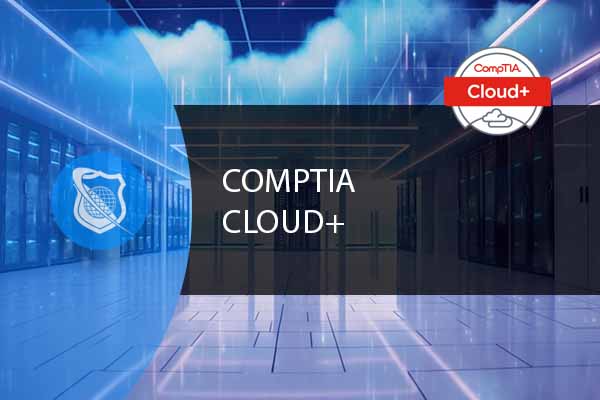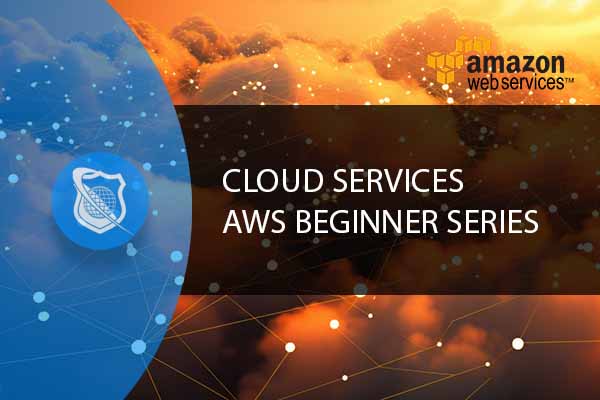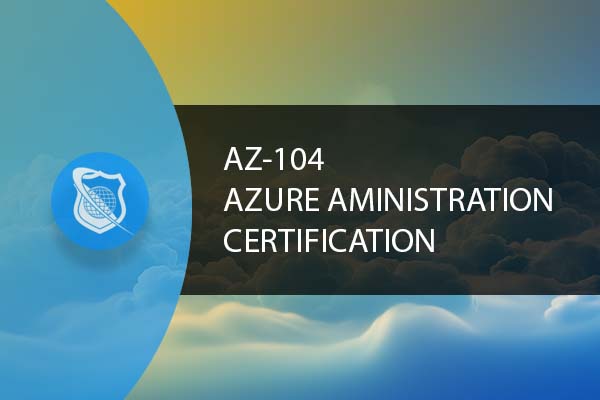In the ever-evolving landscape of technology, cloud computing has emerged as a game-changer for businesses worldwide. Over the past two decades, I’ve witnessed its transformative power, enabling companies to operate more efficiently, scale rapidly, and innovate at unprecedented speeds. Central to this transformation is the selection of the right Cloud Computing Deployment Models. With options ranging from public and private to community and hybrid models, making an informed decision is crucial for any business aiming to harness the full potential of the cloud. In this comprehensive guide, we’ll delve deep into each of these models, shedding light on their unique features, benefits, and potential drawbacks, ultimately guiding you to the model that aligns perfectly with your business needs.
Cloud Computing Deployment Models
The dawn of the digital age brought with it a myriad of technological advancements, among which cloud computing stands out as one of the most transformative. Tracing back to the 1960s, the concept of cloud computing was initially envisioned as a means to allow multiple users to access a single computer simultaneously. Over the decades, this idea evolved, transitioning from grid computing in the 1990s to the sophisticated cloud infrastructures we recognize today.
In today’s hyper-connected world, businesses are no longer confined to the physical boundaries of their offices. Data can be accessed, shared, and stored from anywhere, at any time. This monumental shift has made it imperative for businesses to select the right cloud computing deployment model. The choice is not merely about storage or accessibility; it’s about optimizing operations, ensuring data security, managing costs, and staying competitive in a rapidly changing marketplace.
As we delve deeper into this topic, we’ll explore the four primary cloud computing deployment models: Public, Private, Community, and Hybrid. Each model offers its unique set of advantages and challenges, tailored to cater to different business needs and scenarios. Understanding these nuances is the first step in leveraging the power of the cloud to its fullest potential for your business.
Google Cloud Digital Leader Certification Training
Unlock the future of cloud computing with the Google Cloud Digital Leader Certification! Dive into one of Google’s most innovative courses, placing you at the forefront alongside AWS and Azure experts. Don’t miss out on this exciting opportunity to elevate your career!
Explore the full range of ITU’s Cloud Computing Online Training Courses now!
Public Cloud
Definition and Characteristics:
The Public Cloud is a cloud deployment model where cloud resources (like servers, storage, and networking components) are owned and operated by third-party cloud service providers and delivered over the internet. These resources are shared among multiple users and organizations, often referred to as “tenants.” Some of the most renowned public cloud providers include Amazon Web Services (AWS), Microsoft Azure, and Google Cloud Platform (GCP).
Benefits:
- Cost-effectiveness: One of the most significant advantages of the public cloud is its pay-as-you-go pricing model. Businesses don’t need to invest heavily in physical infrastructure, and they only pay for the resources they consume. This model eliminates the need for capital expenditure on hardware and reduces ongoing operational costs.
- Scalability: Public clouds offer unparalleled scalability. Whether a startup experiencing rapid growth or an established enterprise managing seasonal traffic spikes, the public cloud can easily accommodate fluctuating demands without the need for manual intervention.
- Accessibility: With resources hosted on the internet, users can access data and applications from anywhere globally, provided they have an internet connection. This accessibility facilitates remote work and global collaboration.
Limitations:
- Security Concerns: Since the public cloud serves multiple tenants, there’s an inherent risk of data breaches and cyberattacks. While providers invest heavily in security measures, the shared environment can be a concern for businesses handling sensitive information.
- Potential for Downtime: While cloud providers boast impressive uptime statistics, no system is entirely immune to outages. The multi-tenant nature of the public cloud means that an issue affecting one tenant could potentially impact others.
Ideal Use Cases and Businesses That Can Benefit:
- Startups and SMEs: With limited capital and a need for flexibility, startups and small to medium-sized enterprises can benefit immensely from the cost-effective and scalable nature of the public cloud.
- E-commerce Platforms: Seasonal sales and promotional events can lead to unpredictable traffic. The scalability of the public cloud ensures that e-commerce platforms can handle these spikes efficiently.
- Content Delivery and Media Streaming: The global accessibility of the public cloud makes it ideal for delivering content to a worldwide audience without latency issues.
- Development and Testing Environments: Businesses can quickly set up and dismantle development and testing environments in the public cloud, promoting agility and innovation.
In essence, the public cloud offers a versatile solution for businesses seeking flexibility, scalability, and cost savings. However, it’s crucial for organizations to assess their specific needs and potential risks before fully embracing this model.
CompTIA Cloud+ (Plus) CV0-003 Certification Training
Master the intricacies of cloud environments with our CompTIA Cloud+ training course! Dive deep into optimizing high-availability cloud infrastructures and elevate your expertise. Gear up to ace the CompTIA Cloud+ CV0-003 certification exam and propel your career to new heights!
Explore the full range of ITU’s Cloud Computing Online Training Courses now!
Private Cloud
Definition and Characteristics:
The Private Cloud refers to a cloud deployment model where computing resources are exclusively dedicated to a single organization or business. Unlike the public cloud, where resources are shared among multiple tenants, the private cloud ensures that the infrastructure, both hardware and software, is solely used by one entity. This model can be hosted on-premises in the organization’s data center or outsourced to a third-party provider, but the underlying principle remains: dedicated resources.
Benefits:
- Enhanced Security: One of the standout features of the private cloud is its heightened security measures. With resources not shared among multiple users, there’s a reduced risk of data breaches and cyberattacks. Organizations have full control over their security protocols, ensuring that data remains protected according to their specific standards.
- Dedicated Resources: With the entire infrastructure dedicated to a single entity, organizations can ensure consistent performance levels. There’s no risk of other tenants hogging resources, leading to predictable and reliable operations.
- Customization: The private cloud offers a level of flexibility that’s hard to match. Organizations can tailor their cloud environment to fit their specific needs, from the underlying architecture to the software applications used. This bespoke approach ensures that the infrastructure aligns perfectly with business objectives.
Limitations:
- Higher Costs: The dedicated nature of the private cloud means that organizations bear the full cost of the infrastructure. Whether hosting on-premises or through a third-party provider, the expenses associated with setup, maintenance, and upgrades can be substantial.
- Infrastructure Management: Even if the private cloud is outsourced, organizations still need to invest time and resources in managing the infrastructure. This includes ensuring software is up-to-date, hardware is maintained, and security protocols are adhered to.
Best Suited For:
- Large Enterprises: Big corporations with substantial IT budgets can benefit from the dedicated resources and customization options the private cloud offers. Their complex operations often require a level of flexibility and security that only a private cloud can provide.
- Businesses with Sensitive Data: Organizations that handle confidential information, such as financial institutions, healthcare providers, and government agencies, often opt for the private cloud. The enhanced security measures ensure that sensitive data remains protected, adhering to regulatory and compliance standards.
- Research and Development Firms: Companies that engage in intensive R&D activities often require specific configurations and software setups. The private cloud allows them to create a tailored environment that fosters innovation without compromising on security.
In summary, the private cloud offers a dedicated, secure, and customizable environment that’s perfect for organizations with specific needs and the budget to support it. While it comes with its challenges, the benefits it provides, especially in terms of security and customization, make it a preferred choice for many large enterprises and data-sensitive sectors.
Amazon Web Services – AWS Courses
Fast-track your career with our cutting-edge AWS courses! Dive into one of the tech industry’s leading cloud platforms and empower your future. Join our comprehensive two-course series and become an AWS maestro in no time!
Explore the full range of ITU’s Cloud Computing Online Training Courses now!
Community Cloud
Definition and Characteristics:
The Community Cloud is a specialized cloud deployment model where the computing infrastructure is shared among several organizations with similar objectives and requirements. Unlike the public cloud, which serves a broad range of clients, or the private cloud, which is dedicated to a single organization, the community cloud caters to a specific group. This could be a consortium of banks, healthcare institutions, or academic entities that have common goals, regulatory needs, or security concerns.
Benefits:
- Shared Costs: One of the primary advantages of the community cloud is the distribution of costs. Since the infrastructure is shared among multiple organizations, the expenses associated with setup, maintenance, and operations are divided, leading to significant savings for each entity involved.
- Tailored Solutions for Specific Groups: The community cloud is designed with its users in mind. This means that the infrastructure, applications, and security protocols are tailored to meet the specific needs of the community it serves. Such bespoke solutions can enhance efficiency and ensure that all members benefit from relevant features.
- Collaborative Environment: Given that the community cloud serves organizations with similar objectives, it fosters a collaborative environment. Members can share resources, data, and applications, leading to synergies and collaborative innovations.
Limitations:
- Limited Scalability: While the community cloud offers more scalability than a private cloud, it might not match the almost infinite scalability of a public cloud. As the infrastructure is tailored to a specific group, rapid or unexpected growth might pose challenges.
- Shared Responsibilities: While sharing costs is a benefit, it also means sharing responsibilities. Governance, decision-making, and management can become complex, especially when multiple organizations have a stake in the cloud’s operations. Reaching a consensus on upgrades, security protocols, or new features might take time and negotiation.
Perfect For:
- Organizations with Similar Needs: Industries that have shared regulatory requirements or similar operational needs can benefit immensely from the community cloud. For instance, a group of healthcare providers might come together to create a cloud environment that adheres to specific medical data regulations.
- Research Institutions: Academic and research entities often collaborate on projects, sharing data, tools, and applications. A community cloud can provide them with a unified platform, ensuring seamless collaboration and data sharing.
- Government Agencies: Different departments within a government might have similar IT requirements. A community cloud can cater to these needs while ensuring data security and regulatory compliance.
In essence, the community cloud offers a middle ground between the public and private cloud models. It provides tailored solutions for specific groups, ensuring that all members benefit from shared resources and collaborative opportunities. However, organizations must be prepared to navigate the complexities of shared governance and decision-making.
Hybrid Cloud
Definition and Characteristics:
The Hybrid Cloud is a sophisticated cloud deployment model that combines the best of both private and public clouds. In this model, data and applications can move between private and public clouds, offering greater flexibility and optimization of existing infrastructure. By leveraging a mix of on-premises, private cloud, and third-party public cloud services, businesses can create a balanced computing environment that meets their specific needs.
Benefits:
- Flexibility: One of the standout features of the hybrid cloud is its adaptability. Organizations can allocate resources based on their requirements, using the public cloud for high-volume, less-sensitive tasks and the private cloud for critical, sensitive operations.
- Scalability: With the hybrid cloud, businesses can enjoy the scalability benefits of the public cloud. During peak times or sudden traffic spikes, they can seamlessly offload tasks to the public cloud, ensuring consistent performance without overburdening their private infrastructure.
- Security: The hybrid cloud offers a layered security approach. Sensitive data can be housed within the private cloud or on-premises infrastructure, benefiting from enhanced security measures, while less critical data can be stored in the public cloud.
Limitations:
- Complexity in Management: Managing a hybrid cloud environment can be challenging. Organizations need to ensure seamless integration between private and public clouds, which requires expertise and a deep understanding of multiple platforms.
- Potential Integration Issues: As the hybrid cloud involves multiple platforms and service providers, there might be compatibility issues. Ensuring that different systems communicate effectively with each other can pose challenges, especially when dealing with legacy systems.
Best Suited For:
- Businesses Needing Flexibility: Organizations that experience fluctuating demands, such as e-commerce platforms or content providers, can benefit from the hybrid cloud’s adaptability. They can quickly scale up or down based on traffic, ensuring optimal performance at all times.
- Those Undergoing Digital Transformation: Companies transitioning from traditional IT infrastructures to modern cloud-based solutions often find the hybrid cloud to be a perfect fit. It allows them to leverage their existing infrastructure while gradually moving to the cloud, ensuring a smooth transition.
- Enterprises with Diverse Operations: Large corporations with a wide range of operations, from data-intensive tasks to customer-facing applications, can use the hybrid cloud to allocate resources efficiently. They can ensure that each operation runs on the most suitable platform, optimizing costs and performance.
In conclusion, the hybrid cloud offers a versatile and efficient solution for businesses looking to optimize their IT operations. By combining the strengths of both private and public clouds, organizations can enjoy flexibility, scalability, and security. However, they must be prepared to navigate the complexities of managing a multi-platform environment and ensure seamless integration across systems.
Google Cloud Platform
Unleash your potential with our Google Cloud Platform Certification Training! Whether you’re aiming for GCP Certification or seeking hands-on DevOps expertise, this course is your gateway. Dive in, even as a beginner, and emerge as a sought-after cloud engineer. Your future awaits!
Explore the full range of ITU’s Cloud Computing Online Training Courses now!
Factors to Consider When Choosing a Deployment Model
Selecting the right cloud deployment model is a pivotal decision for any organization. It can influence operational efficiency, cost management, and future growth. While the allure of cloud computing is undeniable, it’s essential to choose a model that aligns with the organization’s unique needs. Here are some critical factors to consider:
- Business Size and Type:
- Small Businesses and Startups: For smaller entities with limited IT resources, the public cloud might be the most feasible option. It offers a cost-effective way to access advanced IT infrastructure without significant upfront investments.
- Medium to Large Enterprises: Larger organizations with more complex operations might lean towards private or hybrid clouds. These models offer greater control over resources and can be tailored to cater to specific operational needs.
- Specialized Industries: For sectors like healthcare, finance, or government, where there are stringent regulatory requirements, community or private clouds might be more appropriate due to their enhanced security and compliance features.
- Budget Considerations:
- Upfront Costs vs. Ongoing Expenses: While the public cloud often has lower initial costs due to its pay-as-you-go model, private clouds might require substantial upfront investments in infrastructure. However, in the long run, a dedicated environment might offer cost savings, especially for larger organizations.
- Hidden Costs: It’s essential to factor in potential hidden costs, such as data transfer fees, service add-ons, or costs associated with scaling up or down in the public cloud.
- Security and Compliance Needs:
- Data Sensitivity: Organizations that handle confidential or sensitive data need to prioritize security. While public clouds have improved their security measures, private or community clouds might offer the enhanced protection that these organizations require.
- Regulatory Compliance: Industries that are subject to strict regulations, such as GDPR for data protection or HIPAA for healthcare, need to ensure that their cloud deployment model aligns with these standards. Non-compliance can lead to hefty fines and reputational damage.
- Future Scalability and Growth:
- Predicted Growth: Organizations expecting rapid growth in the near future might benefit from the scalability of public or hybrid clouds. These models can easily accommodate increasing data or traffic demands.
- Flexibility Needs: If an organization anticipates the need to pivot its operations or enter new markets, a flexible cloud model like the hybrid cloud can be invaluable. It allows businesses to adapt their IT infrastructure based on evolving needs without significant overhauls.
In essence, while cloud computing offers a plethora of benefits, it’s not a one-size-fits-all solution. Organizations need to assess their current operations, anticipate future needs, and consider budgetary constraints to select the cloud deployment model that will serve them best.
Wrapping up
In the dynamic landscape of today’s digital era, cloud computing stands as a beacon of transformation, driving efficiency, innovation, and scalability. As we’ve journeyed through the various deployment models, it’s evident that each offers its unique set of advantages tailored to cater to specific business scenarios. However, the crux of harnessing the full potential of the cloud lies in selecting the right model that aligns seamlessly with an organization’s objectives and operational demands.
The decision is not merely a technical one; it’s a strategic move that can influence a business’s agility, cost structure, and competitive edge. While the allure of immediate benefits might be tempting, it’s paramount to take a long-term view. Assessing individual business needs, anticipating future growth, understanding budgetary constraints, and recognizing security and compliance requirements are all integral to making an informed choice.
Yet, this decision-making process need not be navigated alone. IT professionals, with their expertise and experience, can provide invaluable insights, guiding businesses towards a cloud deployment model that not only meets their current needs but also positions them for future success. In this age of digital transformation, the cloud is not just a tool; it’s a strategic partner. And like all partnerships, the key to success lies in choosing the right fit. So, as you stand at this crossroads, take a moment to reflect, assess, and consult, ensuring that your cloud journey propels your business to new heights.
Cloud Computing Deployment Models FAQ : Find Your Perfect Fit
What are the primary cloud computing deployment models available for businesses?
The primary cloud computing deployment models are Public Cloud, Private Cloud, Hybrid Cloud, and Community Cloud. Each model offers different levels of control, flexibility, and management, catering to various business needs and objectives.
How do I determine which cloud computing deployment model is right for my business?
To determine the right cloud computing deployment model for your business, consider factors such as your data sensitivity, compliance requirements, scalability needs, budget constraints, and the level of control you wish to maintain. A thorough analysis of these factors will help you choose between public, private, hybrid, or community cloud models.
Can small businesses benefit from adopting a cloud computing deployment model, and if so, which one?
Yes, small businesses can significantly benefit from adopting a cloud computing deployment model. The Public Cloud is often the most cost-effective and scalable option for small businesses, offering access to vast resources without requiring large investments in infrastructure.
What are the security implications of each cloud computing deployment model?
Security implications vary by deployment model:
Public Cloud tends to be less customizable in terms of security, relying on the cloud service provider’s built-in security measures.
Private Cloud offers more control over security, allowing businesses to implement their security protocols and compliance measures.
Hybrid Cloud combines the flexibility of the public cloud with the security of a private cloud, necessitating a balanced approach to security across both environments.
Community Cloud shares infrastructure between multiple organizations with similar security requirements and concerns, potentially offering a tailored security posture that benefits all participants.
How does the choice of a cloud computing deployment model impact scalability and cost-efficiency?
The choice of a cloud computing deployment model has a significant impact on scalability and cost-efficiency:
Public Cloud offers high scalability and cost-efficiency, ideal for businesses with fluctuating demands.
Private Cloud provides customizable scalability but at higher costs due to dedicated resources.
Hybrid Cloud allows businesses to balance cost and scalability by using the public cloud for non-sensitive, scalable workloads and the private cloud for critical, stable workloads.
Community Cloud offers a cost-sharing model that can be cost-effective for organizations with similar needs, though scalability is limited to the agreed-upon infrastructure setup.
AZ-104 Microsoft Azure Administrator Certification
Unlock the power of Microsoft Azure with our AZ-104 Certification course! Dive deep into Azure’s vast capabilities and emerge as a proficient administrator. From foundational insights to advanced techniques, we’ve got you covered. Elevate your skills and stand out in the tech world!
Explore the full range of ITU’s Cloud Computing Online Training Courses now!















